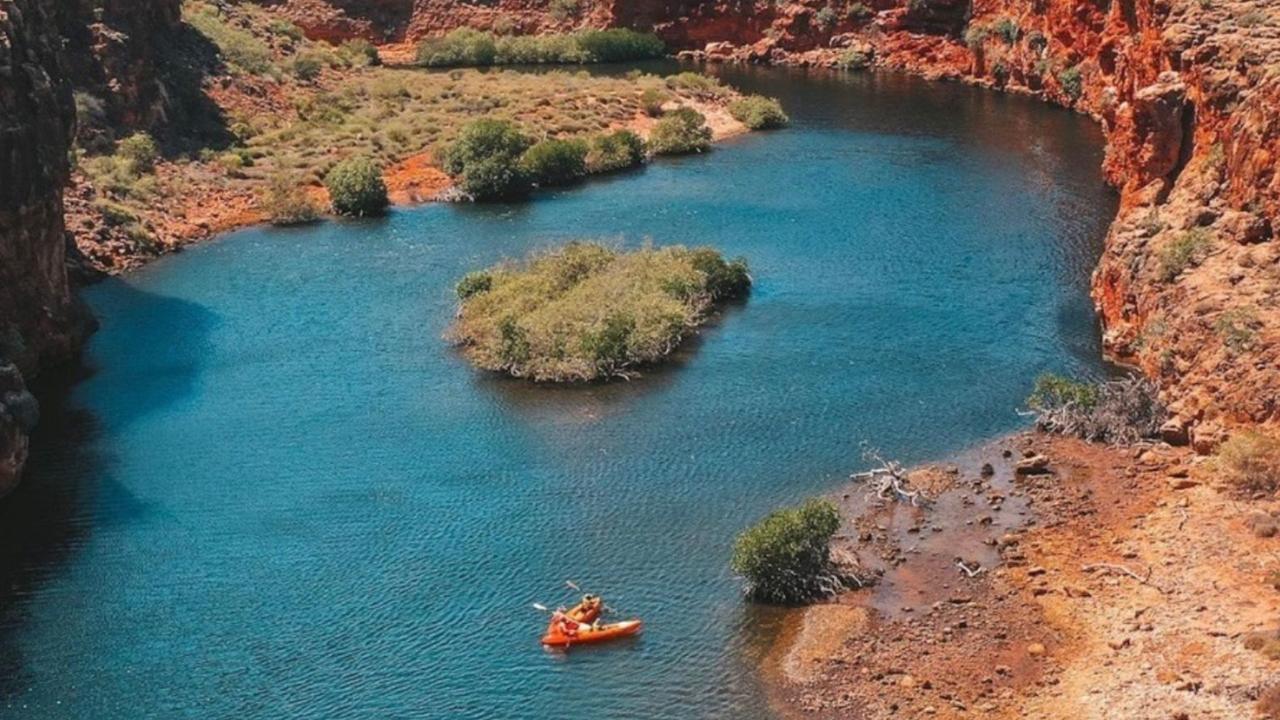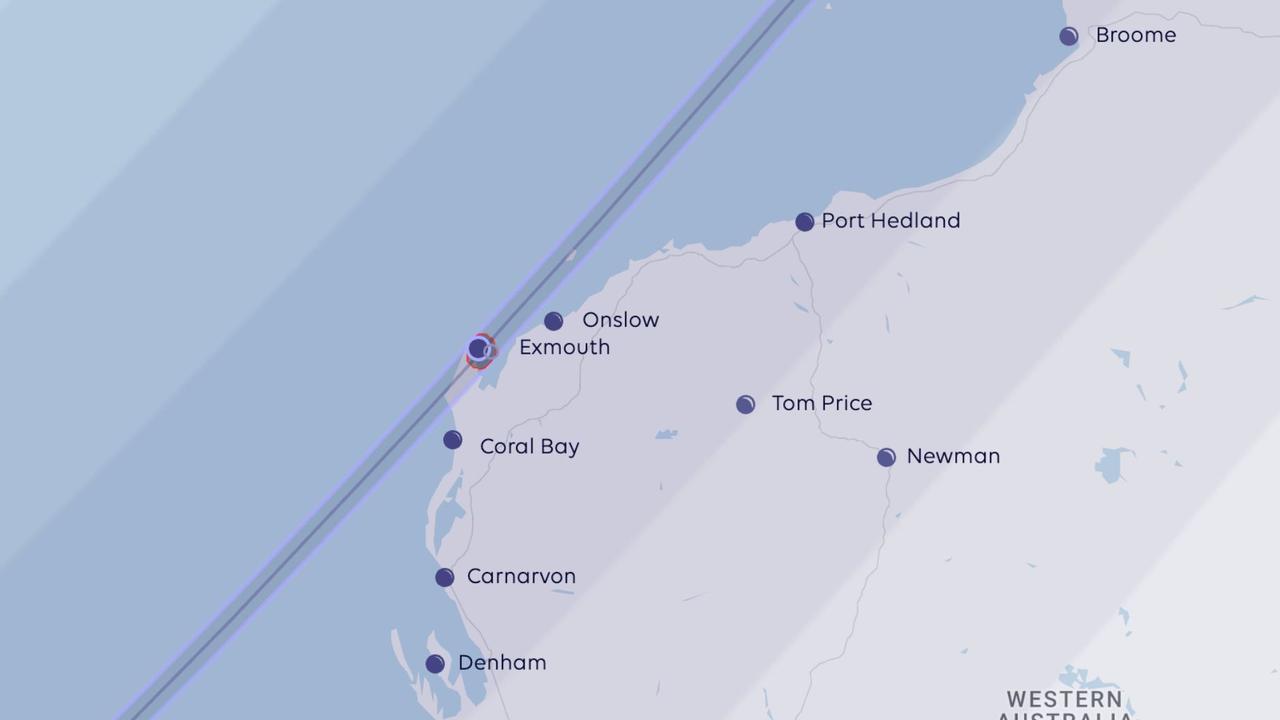‘Remarkably rare’ astronomical event to bring influx of tourists to small WA town
A long-awaited phenomenon that’s set to paint the town black is about to put one West Australian region on the map.
A West Australian town situated on one of the most far-west points of the country is preparing to welcome an influx of visitors for a unique celestial event.
Exmouth, a coastal tourist destination more than 1000km north of Perth, has gained global interest due to its unique and remote location which will provide almost exclusive access to the Ningaloo Eclipse.
The solar event, which is anticipated to last at least three hours in duration, will allow stargazers to experience the sun, moon and earth aligning in a rare astronomical formation.
The morning spectacle will occur around midday on April 20, and is expected to attract up to 25,000 space enthusiasts from around the world, increasing the town’s population eight-fold.

Locals told news.com.au they’ve been preparing for the event for up to two years, with the momentous occasion prompting the Western Australian government to give the Ningaloo Eclipse its own website.
While total solar eclipses usually occur on earth every 18 months, it’s uncommon to spot them as they’re mostly only visible from sea.
However this year’s phenomenon will be accessible by land making it a “remarkably rare” viewing opportunity.
“A total solar eclipse is when the moon comes between the sun and the earth,” Professor Peter Klinken, chief scientist of Western Australia, said in a video explaining the event.
“The moon essentially blocks out the rays of the sunlight coming onto Earth. It’s a bit like the Rolling Stones record Paint It Black where they have this line ‘see the sun blotted out from the sky’.”
Consequently the town will experience 62 seconds of complete darkness and might see some stars and planets become visible, feel the air temperature drop and notice a change in animal behaviour.
What makes the event even more special is it will take place over the World Heritage-Listed Ningaloo region which is renowned for its pristine coral reefs and coastal life.

General Manager at Exmouth IGA, Dustin, said the community is really excited about the event, particularly given its been talking about it for the last 24 months.
“We’re finally at the pointy end (of preparations) so I think the vibe in the town is really great,” he told news.com.au.
Being the main supermarket in the area, Dustin said it would be interesting to see how his store and other businesses would cope with the increase in customers travelling to the region for the eclipse.
“We normally go through a pretty busy period at this time of the year anyway but I feel like the extra people are definitely going to have a positive impact on sales,” he said.
As for Dustin’s message to visitors coming to the region, he exclaimed: “Welcome! We’re excited to have you.”
Meanwhile, another business owner who didn’t wish to be named, said she was uncertain whether tourist numbers would reach projections as short-stay accommodation was still available in some areas.
Despite this, she said the area was mostly prepared to handle the influx of people given tourist numbers increased post-Covid.
“It‘s going to be an interesting one. No one really knows which way it’s going to go,” she told news.com.au.
“We are looking forward to it and it has been something that we tried to be as prepared for as possible.”

While the eclipse is the main event, the business owner also wanted to remind tourists of the countless other experiences and opportunities the destination has on offer, suggesting families could make a holiday out of the spectacle.
For those unable to make it to Exmouth for the event, Professor Klinken shed some light on other areas where stargazers would be able to catch a glimpse of the eclipse.
“In Carnarvon, which is slightly south of Exmouth, there’ll be 97 per cent of the eclipse and in Perth, 72 per cent,” he said.
“If you’re in Sydney only 10 per cent, so Exmouth is the ideal place to see a total eclipse of the sun.”
Exmouth has a population of 3,085 people, according to the latest census data from the Australian Bureau of Statistics (ABS).
The town was originally founded for military purposes but has since flourished into an eco-tourism hotspot where visitors can swim with sea creatures, enjoy coastal cruises and sight-see.
News.com.au contacted Exmouth shire president Darlene Allston for comment, however she didn’t respond at the time of publication.
Originally published as ‘Remarkably rare’ astronomical event to bring influx of tourists to small WA town





